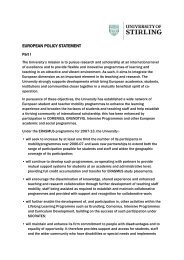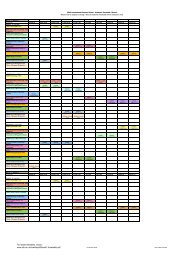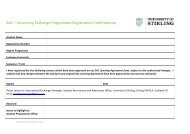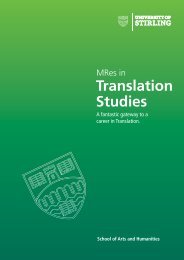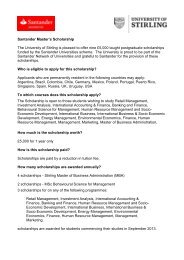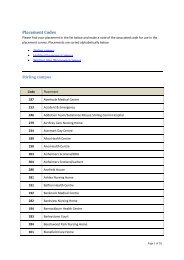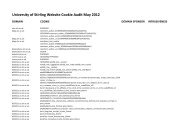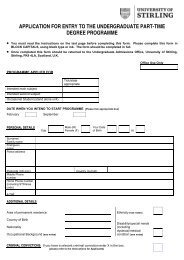Supporting a uK SucceSS Story: The impacT of - Research Councils ...
Supporting a uK SucceSS Story: The impacT of - Research Councils ...
Supporting a uK SucceSS Story: The impacT of - Research Councils ...
Create successful ePaper yourself
Turn your PDF publications into a flip-book with our unique Google optimized e-Paper software.
Health and Wellbeing<br />
Monitoring air quality for athletes<br />
Athletes are particularly vulnerable to the effects <strong>of</strong> air<br />
pollution as a consequence <strong>of</strong> their heavy training regimes<br />
and high breathing rates during competition, which increases<br />
their pollution dose. <strong>The</strong> effects <strong>of</strong> air pollution on athletic<br />
performance were evident at the Los Angeles Games in 1984,<br />
when the UK’s Steve Ovett collapsed following the 800 metres<br />
final with severe respiratory problems, citing air pollution as a<br />
major trigger in the exacerbation <strong>of</strong> his exercise induced asthma.<br />
Monitoring air pollution levels in the lead-up and during the<br />
Games is crucial to assess and manage health risks to athletes<br />
who will be competing in London 2012.<br />
<strong>Research</strong>ers from King’s College London were asked to give<br />
evidence to the International Olympic Committee about<br />
pollution data for London which might affect the 2012 Games.<br />
Pollutants such as nitrogen dioxide mainly effect wide areas <strong>of</strong><br />
London during the winter, but each week in August there is a 10<br />
to 20 per cent chance <strong>of</strong> ground level ozone exceeding World<br />
Health Organisation Guidelines.<br />
“Each week in August there is a 10 to 20 per cent<br />
chance <strong>of</strong> ground level ozone exceeding World<br />
Health Organisation Guidelines.”<br />
London has the largest and most advanced air quality<br />
surveillance systems <strong>of</strong> any city in Europe. <strong>The</strong> system is funded<br />
by local and central government and run by King’s College<br />
London from an operations centre at the Waterloo campus<br />
where researchers combine air pollution science, toxicology<br />
and epidemiology to determine the impacts <strong>of</strong> air pollution on<br />
health and the causal factors. During the London 2012 Games,<br />
researchers from King’s will monitor air pollution levels and<br />
provide this information to the Health Protection Agency (HPA)<br />
so it can assess potential health risks caused by air pollution<br />
during the Olympic and Paralympic Games.<br />
SECTION two : Health and Wellbeing 33





